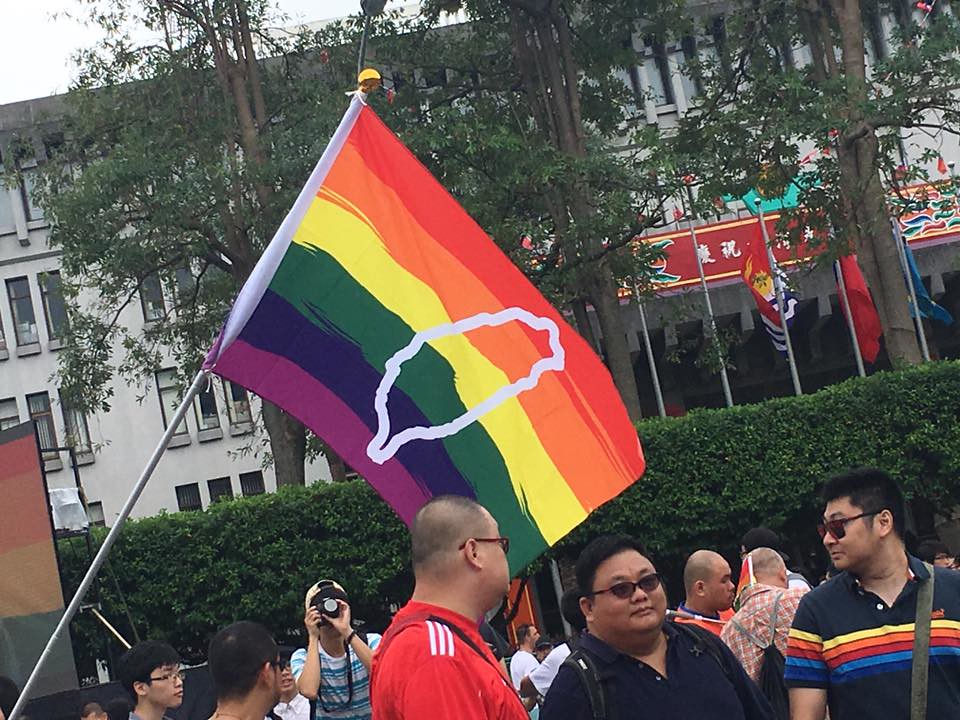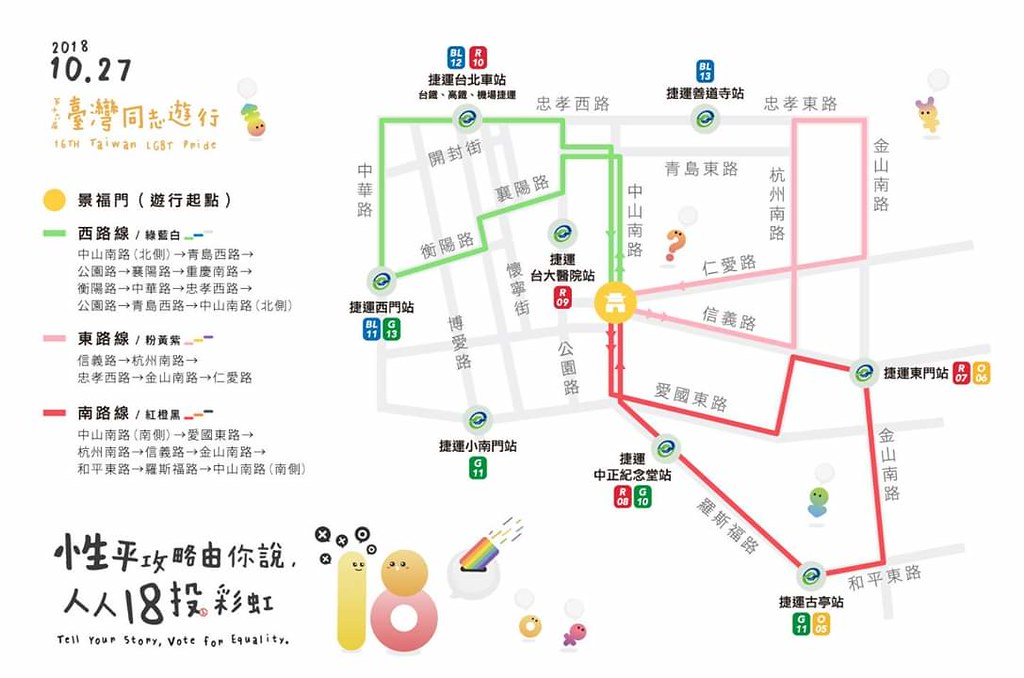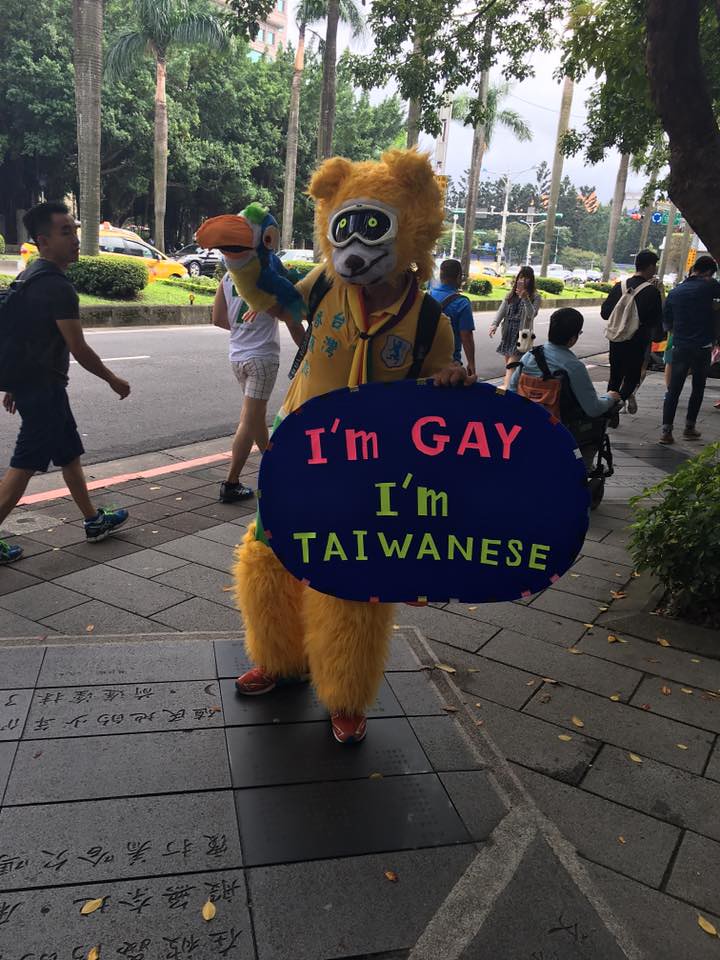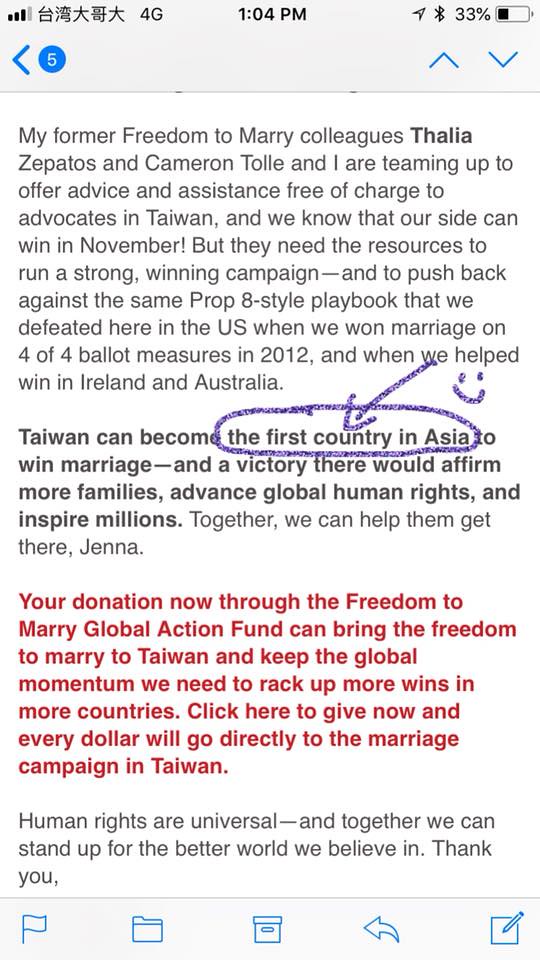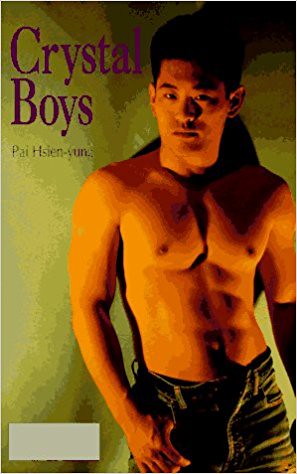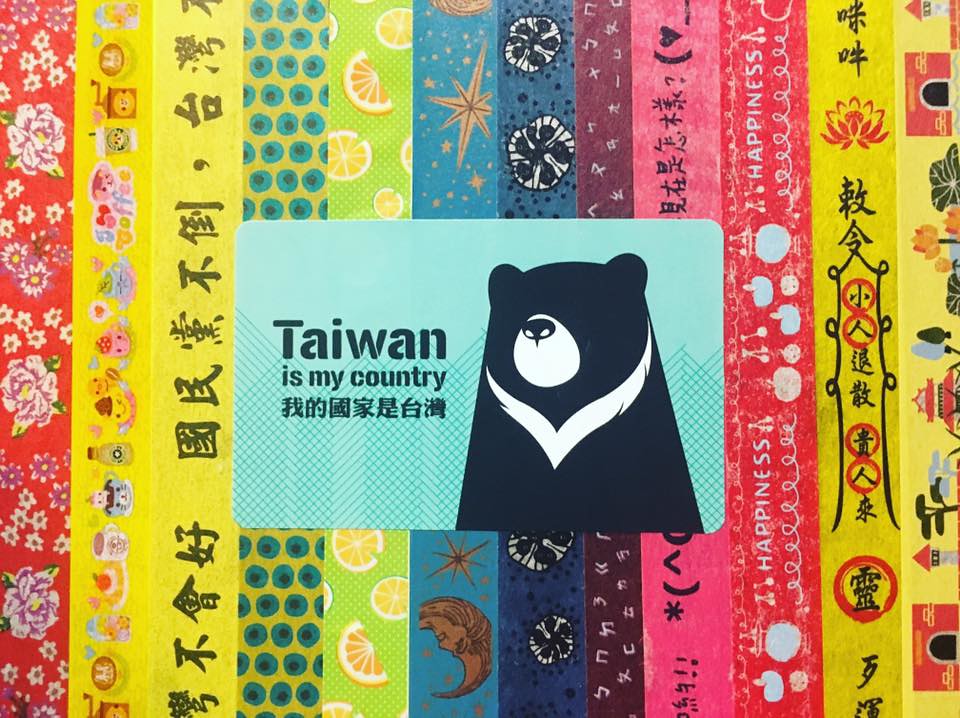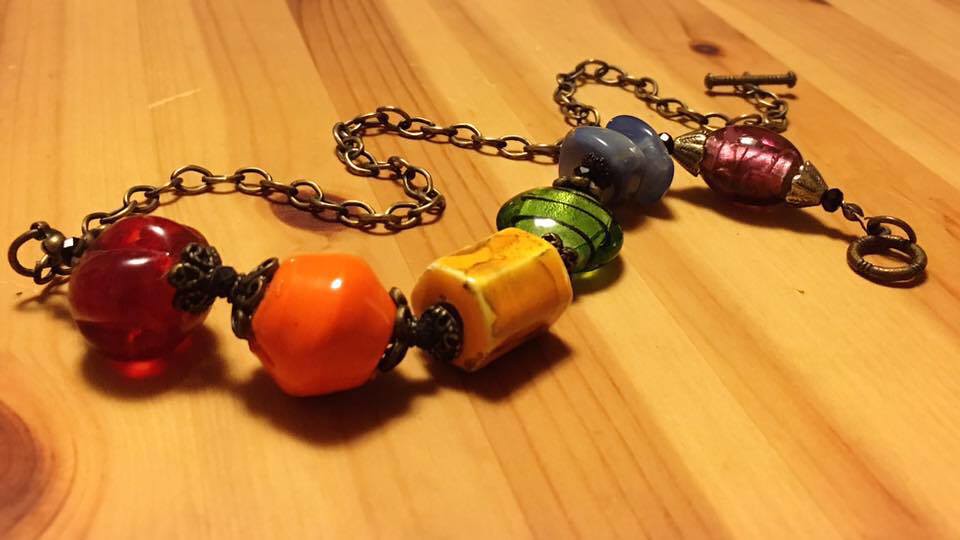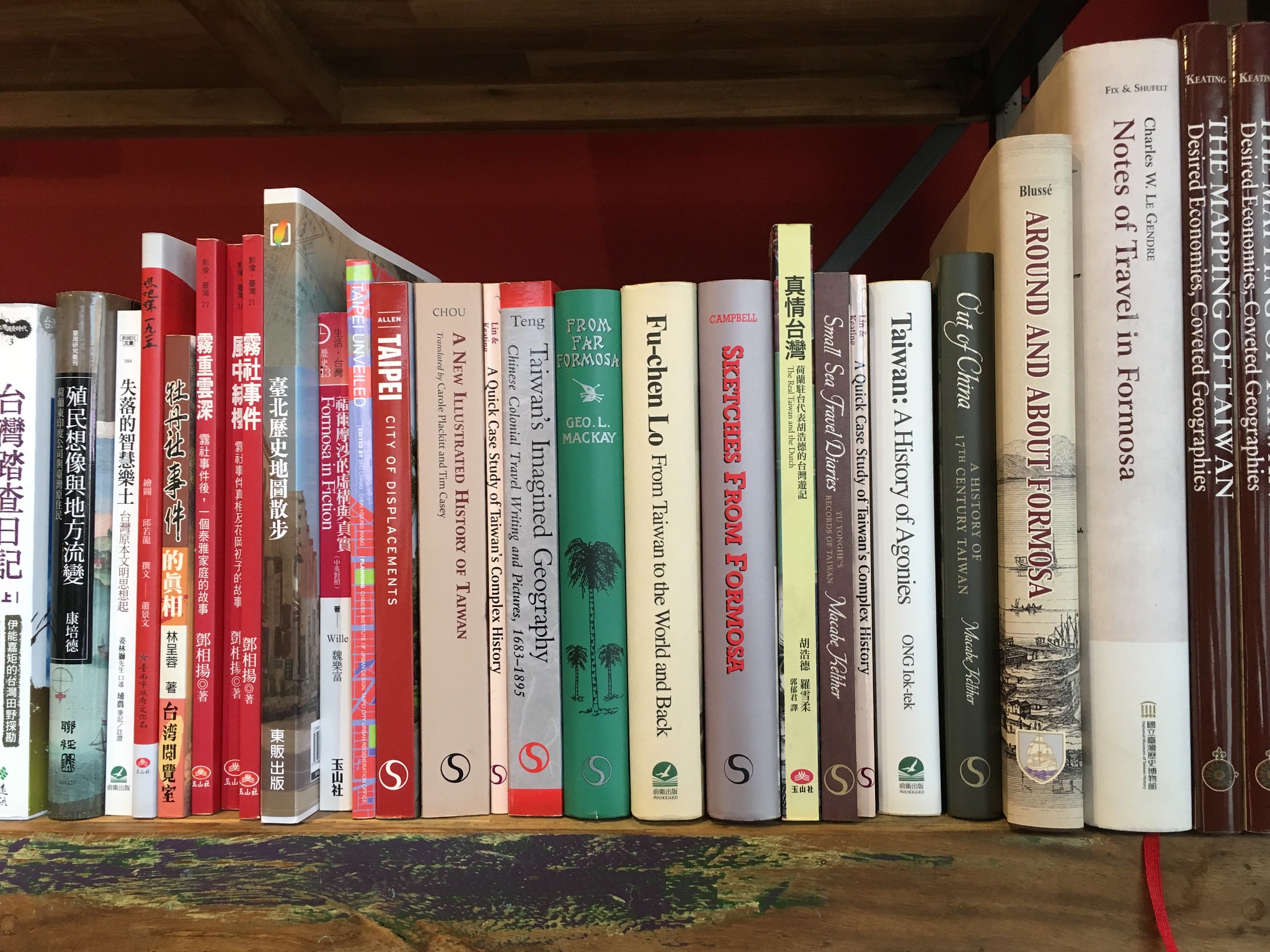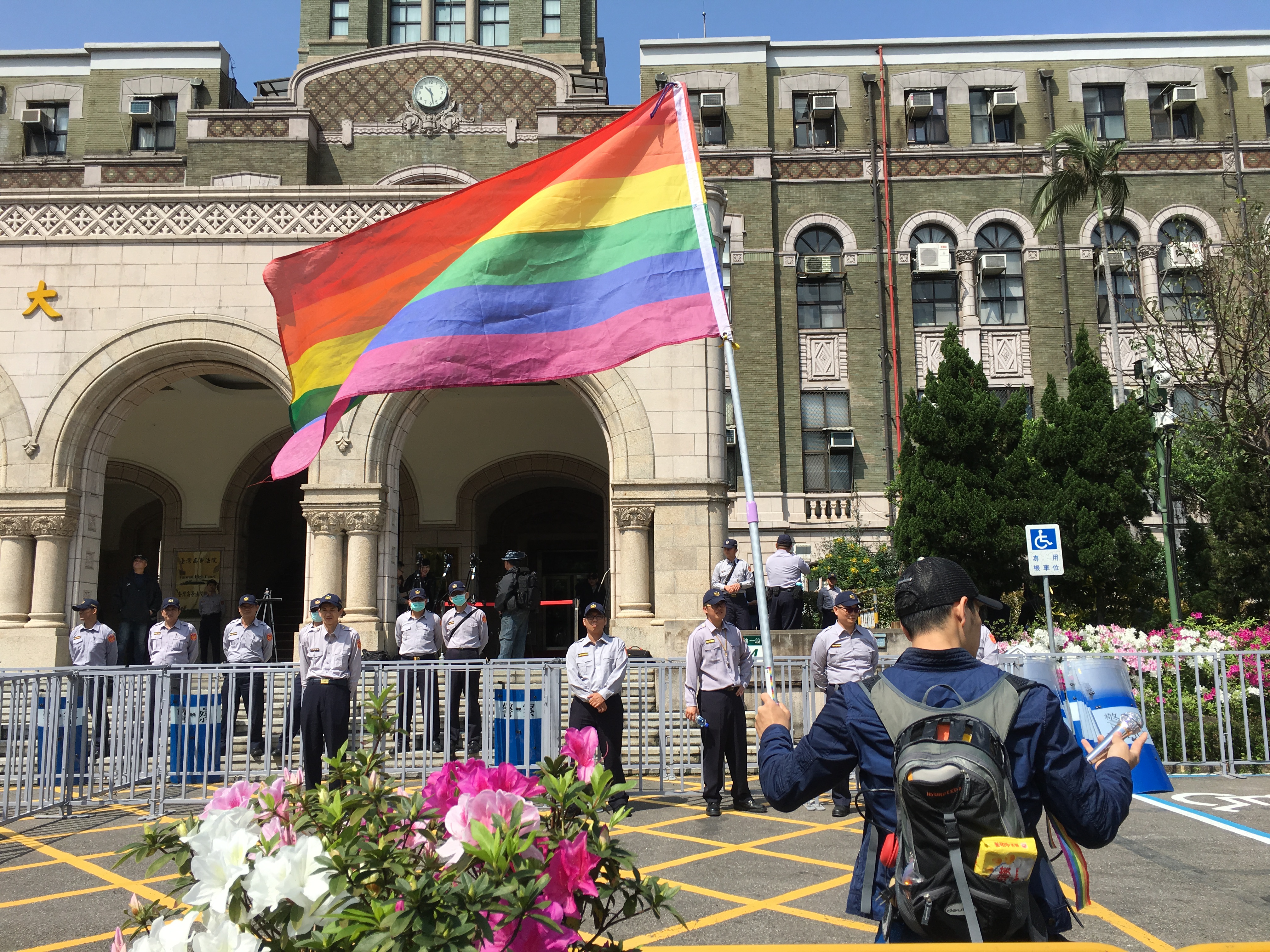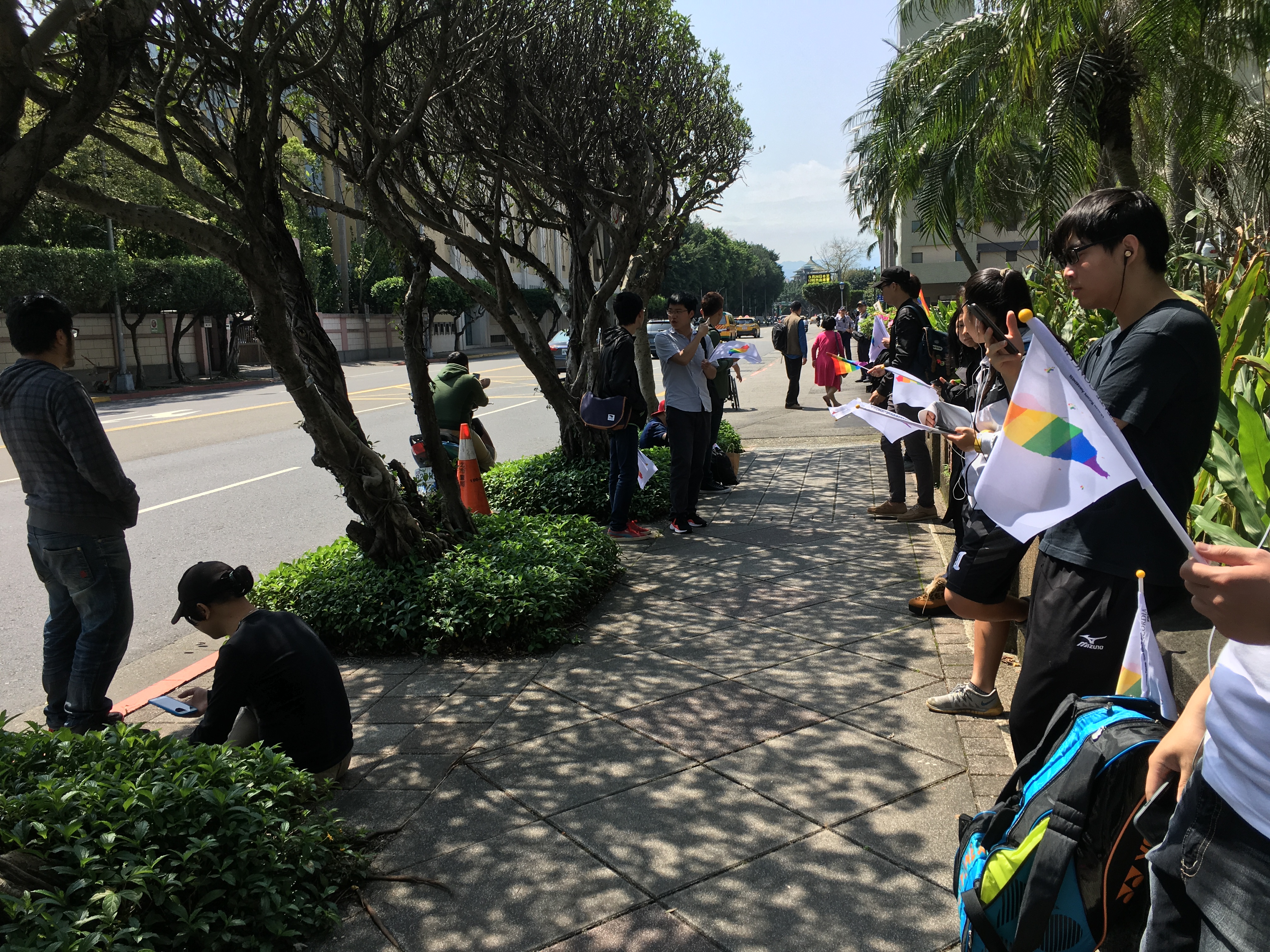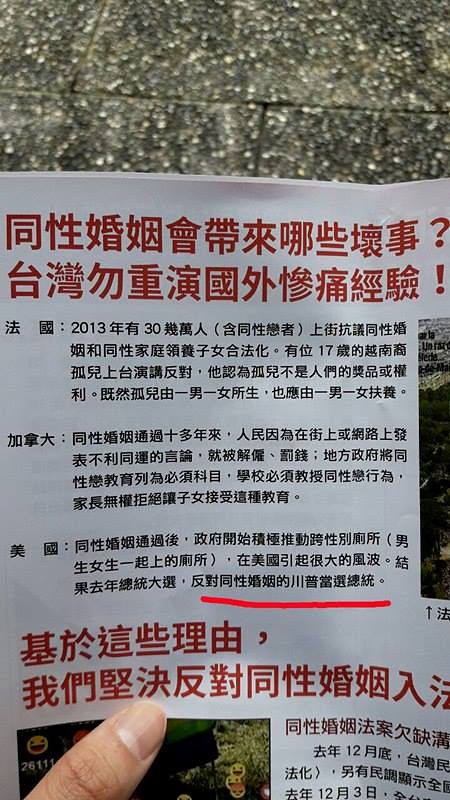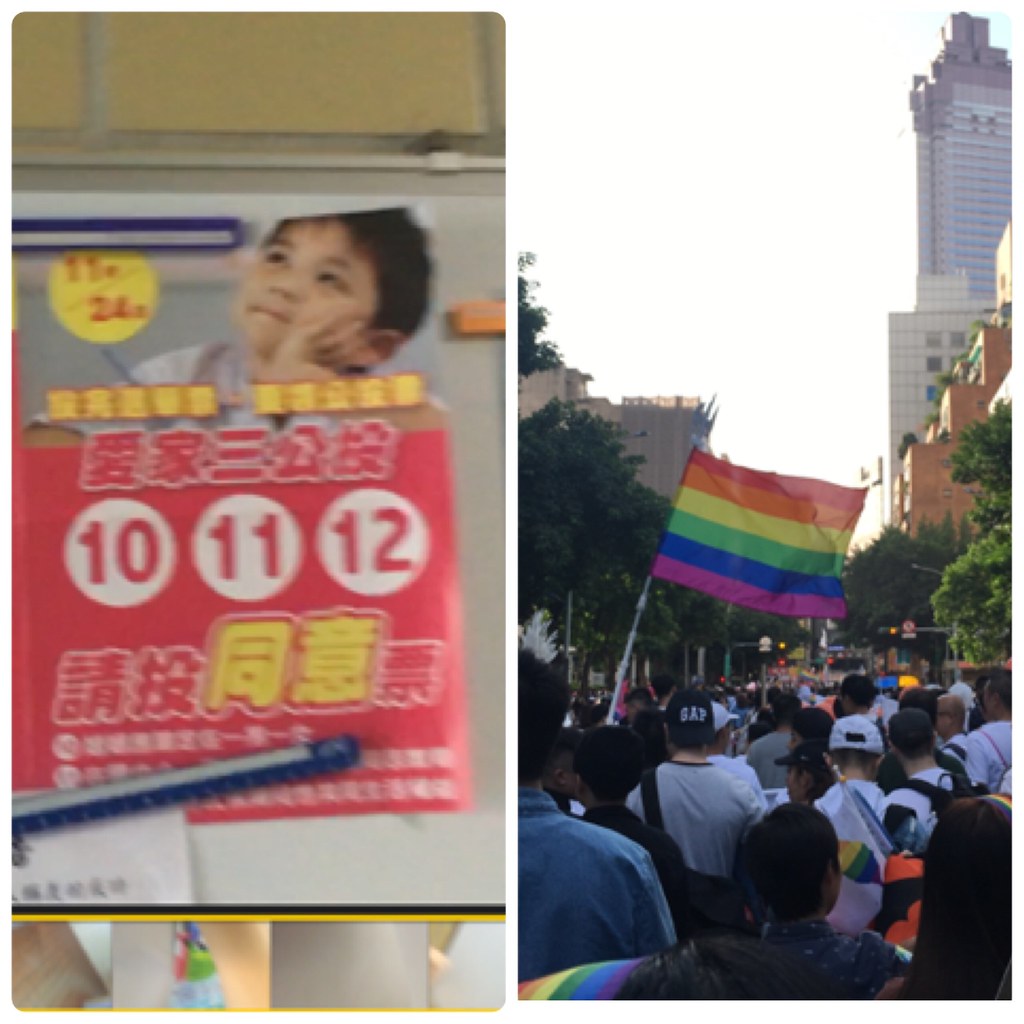
Trying to keep this nice and short, because I still have a paper to write. But, this is worth a look.
A Facebook friend recently shared a link to this
Go ahead, watch. Well, get a bucket first. Then watch. I'll wait.
Done puking? Good.
So, for the non-Chinese speaking readers out there, it's a very simple premise. Sad probably-lesbian family member hugs her pretty bigot family member.
Woman: "Why don't you care about me?"
Pretty Bigot: "In fact, I love you."
Woman: "Why don't you understand me?"
Pretty bigot: "In fact, you're my family."
Woman: "Why don't you support me?" (presumably meaning her right to marry)
Pretty bigot: "I support you."
*Cue inspirational rock muzak*
Pretty bigot: So I hope there's a special law to protect you. In fact, we love one another. I only hope my standpoint can be clear to you.
Woman smiles and cries because her Pretty Bigot relative is so understanding and awesome.
Then it says to vote for referendums 10, 11, and 12.
10, 11 and 12 are the referendums against marriage equality.
Anyone not paying much attention, from this commercial, would think they are voting for equal rights for their LGBT+ loved ones, not against them. And yet, that's exactly what this commercial is telling them to do. Or, anyone who doesn't want to seem like they're anti-equality but in fact doesn't support equal rights has just been handed a beautifully-pressed fig leaf with which to cover their bigotry.
This isn't even the first trick (or even the same one of that type).
Recently, I observed that the particular wording of one of the referendums aims to make it sound as though one is supporting ensuring "the rights and interests" (權益) of same-sex couples by voting for it (The Diplomat also reported on this). If you read carefully, however, it specifically says 婚姻以外 - "in a manner other than marriage". This particular phrasing seems aimed at two groups. The first, I think, are conservative oldsters who don't want to admit that they are a bit homophobic (in particular, perhaps, that demographic who are fiercely pro-Taiwan and will proudly tell you that Taiwan stands for human rights, freedom and democracy, but who still get the willies when two dudes kiss while not wanting to consider themselves as someone who would deny other Taiwanese 'equal rights'). The second are the "compromisers" - the same group that thinks "the status quo" is just fine because it's "safe", who think that any "middle ground" solution is automatically good because it's in the middle.
Neither group wants to seem bigoted, so this "protect the rights and interests of homosexuals" wording offers them a fig leaf to vote against equality while telling themselves they are good people.
This got me worried about the other ways in which anti-gay groups were trying to advertise their anti-gay agenda as pro-LGBT support.
We all know now that anti-marriage equality groups signed up to represent the pro-equality side in scheduled televised debates. Not having a television, I'm not actually sure if these debates have aired as yet, and I haven't seen any news about them since.
Update! The CEC didn't seem intent on taking any particular action, so pro-equality groups loudly congratulated anti-equality ones on "changing sides", which was embarrassing enough to the anti-equality groups that they dropped out. GOOD JOB!
The campaigning of the anti-equality groups is similarly illegal. They're not supposed to be handing out political literature on trains or putting up fliers or banners in public areas for free (the same rules apply to election campaigns), but that is what they are doing. They either have to pay for advertising, or get permission from private property to put up their banners (or put them on their own buildings). They can pass out fliers on streetcorners, but not on public transportation.
If you see this happening, you can and should call train attendants to tell them to stop.
If you see banners illegally placed in public areas, you can take them down. They broke the law, not you. If you don't feel comfortable with that, call the number below:
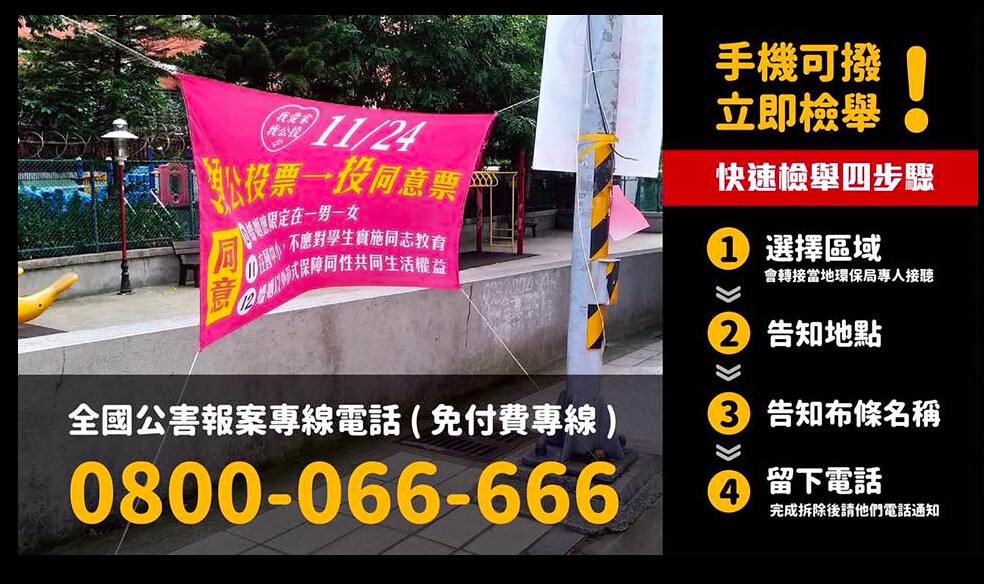
That's 0800-066-666
And it goes without saying that there is a lot of misinformation being spread about how marriage equality will "contribute to the declining birthrate" or "turn Taiwan into an AIDS island". This is the sort of thing they are spreading on Line groups, as they infiltrate community, family and school Line communities where political posts don't belong.
That's so ridiculous, it doesn't even count as 'trickery'. It's not a twist of the truth or confusing wording. It's just lies.
That said, I honestly think these deliberately slippery ads that equate voting for anti-marriage equality initiatives are a way to support your LGBT friends and relatives alongside confusingly-worded initiatives are even more worrisome. Some people may genuinely be tricked. Some may simply trick themselves.
And frankly, the line between being tricked into supporting bigotry and choosing not to notice that you are being led to it is fine and blurry at best, if it exists at all. Some might be misled by these tactics, but many others are looking for reasons to convince themselves that they can vote against equality without being terrible people.
And that's terrifying, because it very often works. We all have deep-seated prejudices we'd rather convince ourselves aren't there. I'm sure I do (I try to find them and root them out but almost by definition I don't know what they are until I wake up to them.) How many grandmas who don't hate their gay grandsons, how many friends who don't hate their LGBT+ friends, how many sisters and brothers, how many uncles who love their LGBT+ loved one, but deep down secretly still get the willies when two dudes kiss, and so want a fig leaf to say they "support them" with a "special law" as a way of voting against actual equality?
My guess is a lot. And that scares the crap out of me.
I want to say "dirty tricksters never win", but you know what, sometimes they do. Sometimes they win bigly. In the end they generally get discovered and eradicated - like those latent prejudices I keep discovering and rooting out, or particularly bulbous whiteheads - but they can do a lot of damage in the meantime.
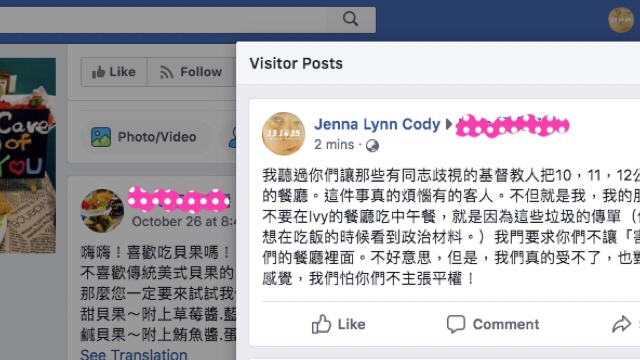 |
| I didn't bother to check the Chinese so I just have to assume my prose is comprehensible. |
So what can we do to counter these slimy and illegal tactics?
Other than alerting employees on public transit and calling to complain about public signs, there are other actions you can take.
If you see fliers put up where they shouldn't be allowed - I saw one in my building this morning! - take them down. You are within your rights as long as you don't destroy any property.
If someone tries to give you a flier, loudly and vocally tell them that you disagree with discriminating against LGBT+ people. Use English if you have to - you aren't going to change their mind but your point will be clear to people around you.
If you see stacks of fliers left in public buildings (e.g. libraries, municipal facilities, schools), this too is typically not allowed. Just take them all! After all, they're free to anyone. Why not let them all be free to you?
If a business you frequent has these fliers available, tell them openly that this bothers you and that you will no longer patronize their business unless they stop allowing these kinds of political materials. Post on their Facebook page, include it in reviews etc. Take a photo to prove your case, because people are litigation-happy here about bad reviews. Do the same if there's a 青少年純潔協會 donation box (they are loaded, and anti-equality). Ask for it to be removed; some establishments might comply!
If someone gums up your Line group with their garbage, don't let it stand. Respond! Tell them you don't agree with discriminating against LGBT+ people, or that this sort of political talk is not welcome in your otherwise unrelated Line group.
If you want to donate, there are many choices. Here's just one, directly related to the fight for marriage equality.
If you want to add your physical presence to the crowd of supporters, start tying rainbow gear to your bag, and attend the pro-marriage-equality rally on November 18 at Ketagalan Boulevard. It starts at 1, and Chthonic will perform in the evening!
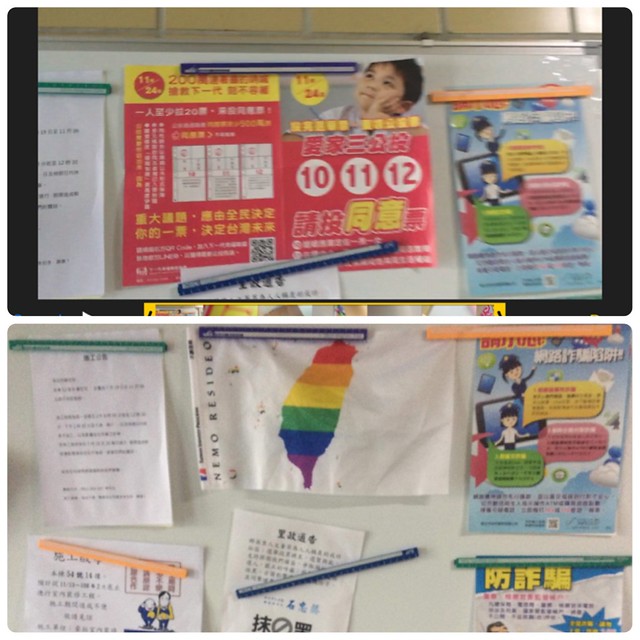 |
| My building this morning: before I came through, and after. They have no right to put up political fliers in private apartment buildings, so I don't feel sorry at all about a little sabotage. |

